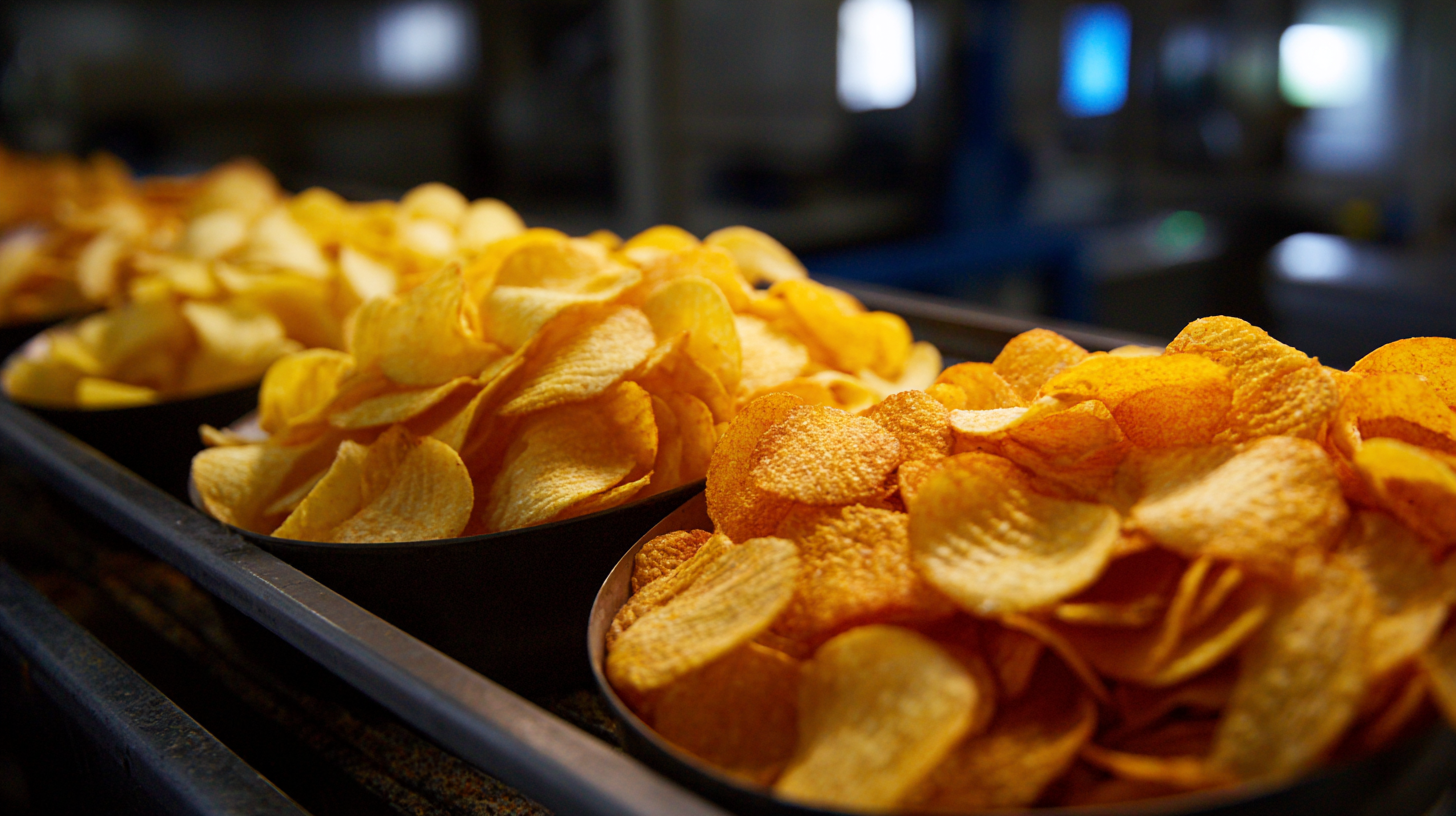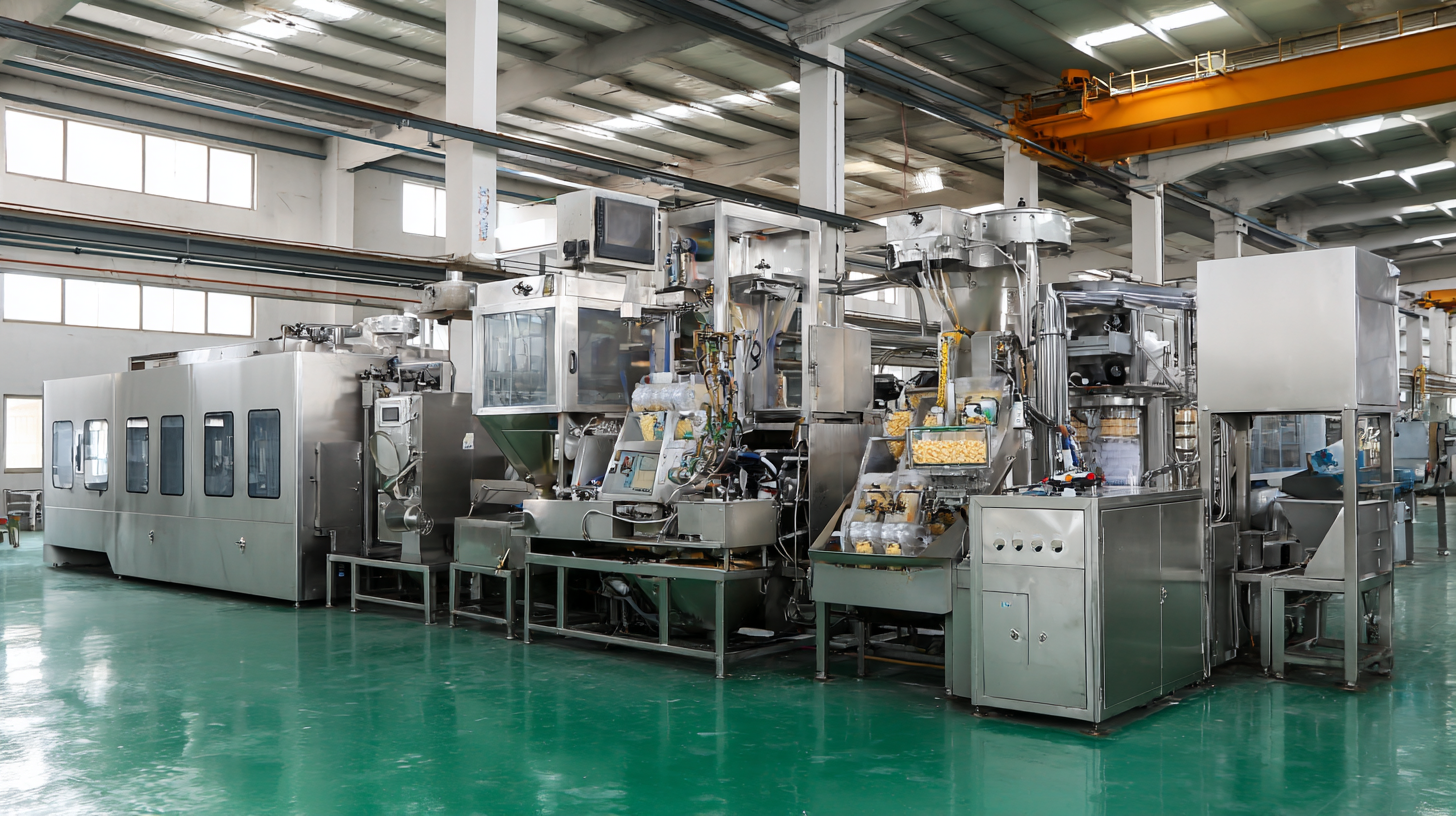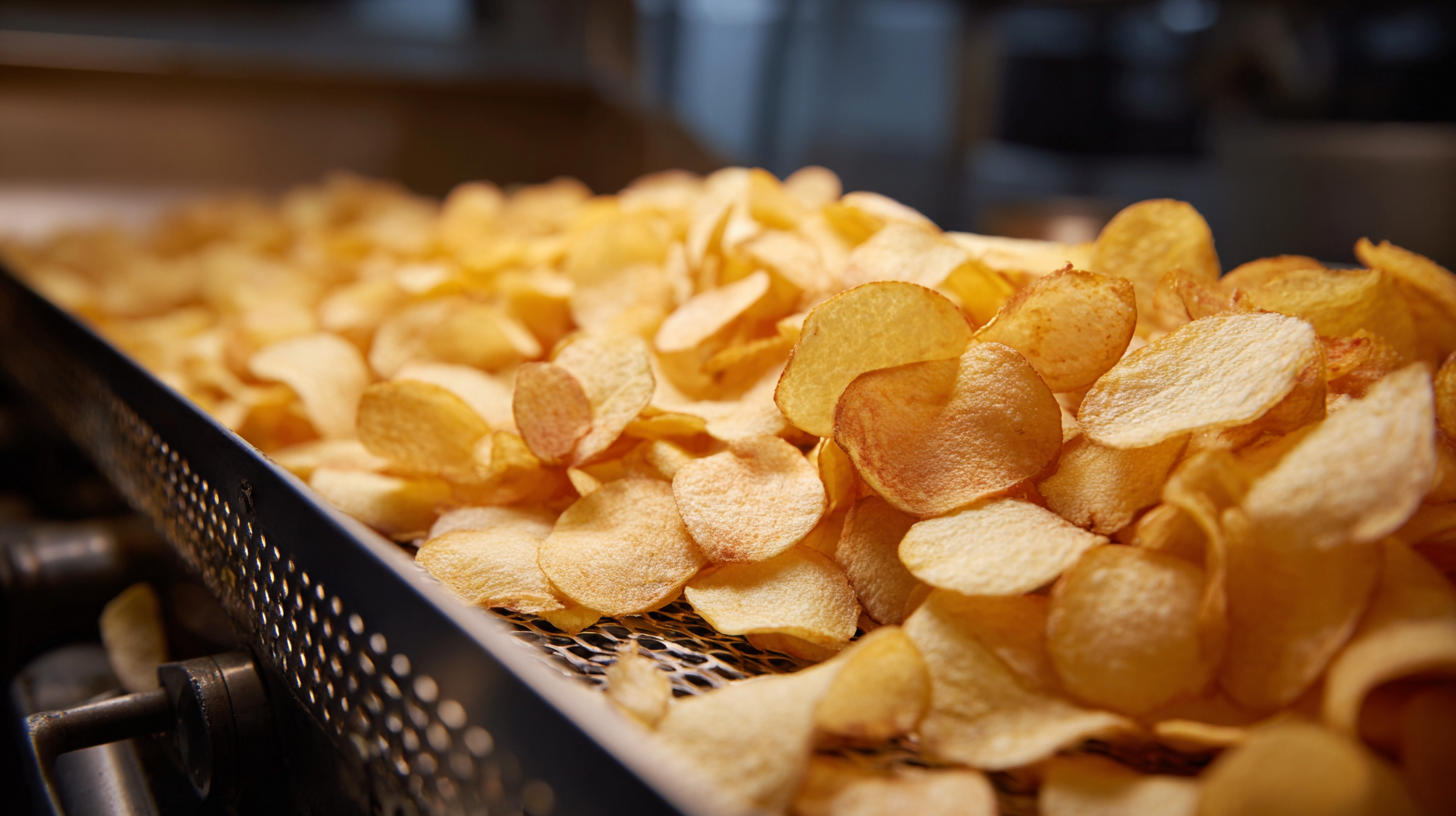
In recent years, the global snack food market has witnessed remarkable growth, with the potato chips segment alone projected to reach a staggering market size of over $37 billion by 2024, according to industry reports. This surge presents an enticing opportunity for small businesses, particularly those utilizing the Small Scale Potato Chips Machine, which enables entrepreneurs to produce high-quality snacks with lower investment and operational costs. By gaining the necessary import-export certifications, these small-scale manufacturers can unlock international markets, tapping into the increasing demand for diverse snack options. As competition intensifies, understanding the strategies for acquiring these certifications becomes crucial for small-scale producers looking to thrive in a global marketplace.

The small-scale potato chips machine industry has seen significant growth in recent years, driven by increasing consumer demand for snack foods. According to a report by Allied Market Research, the global potato chips market is expected to reach $43 billion by 2025, with a compound annual growth rate (CAGR) of 6.1% from 2018 to 2025. For manufacturers and exporters of small-scale machinery, obtaining import-export certifications is crucial in navigating this burgeoning market. These certifications facilitate compliance with international standards, ensuring that machinery meets health, safety, and environmental regulations in different regions.

Furthermore, having the right certifications can enhance a company’s credibility and competitiveness. In a survey conducted by the International Trade Centre, 70% of exporters reported that relevant certifications significantly improved their market access. This is particularly relevant for small-scale businesses aiming to penetrate global markets. Quality certifications, such as CE marking in Europe or ISO standards worldwide, not only build trust with consumers but also differentiate companies from competitors. As the market continues to expand, the importance of these certifications cannot be overstated; they are essential in maximizing export opportunities and ensuring sustainable growth in an increasingly interconnected global economy.
In the ever-evolving landscape of food manufacturing, securing the right certifications for your potato chips manufacturing equipment is paramount. Recent reports have highlighted the critical factors affecting the setup and cost of potato chips manufacturing plants. According to the latest insights from IMARC Group, understanding the machinery requirements and adhering to safety standards can save you significant investment in the long run.
**Tips:** Always ensure that your equipment meets local health and safety certifications to avoid any compliance issues. This includes food safety standards that guarantee your products are safe for consumption.
Moreover, as countries strive to bolster their manufacturing sectors, such as India's recent initiatives to reduce certification fees in the telecom sector, similar opportunities may arise in food manufacturing. Staying informed about changing regulations can open doors to more efficient production processes and lower operational costs.
**Tips:** Regularly update your knowledge on industry certification requirements and engage with local regulatory bodies to ensure your plant operates smoothly and efficiently. Investing time in understanding these certifications can provide a competitive edge in the global marketplace.

Small scale potato chips machines have proven to be a game-changer in the global market, particularly as countries like China enhance their innovation capabilities. As the economic landscape evolves, so do the methodologies employed by small and medium-sized enterprises (SMEs) to penetrate international markets. Successful case studies demonstrate how local businesses have harnessed advanced manufacturing technologies to produce high-quality potato chips, catering to diverse consumer tastes across different regions. These machines not only optimize production processes but also ensure adherence to certification standards, which are crucial for global trade.
In Asia and Africa, innovative solutions such as solar drying have emerged to support the agricultural sector. By integrating these sustainable technologies with small scale potato chips production, entrepreneurs are able to extend the shelf life of raw materials, minimizing waste while increasing profitability. This synergy between agricultural innovations and food processing machines highlights a growing trend among SMEs to leverage advanced techniques for market expansion. As the globalization of trade continues, stories of these successful enterprises serve as inspiration, showcasing the transformative power of technology in the food processing industry.
When it comes to small scale potato chips production, understanding the types of machines available on the market is crucial for aspiring entrepreneurs. Various models cater to different production capacities and operational preferences. For instance, some compact machines are designed for home use or small businesses, providing a range of functionalities from slicing to frying in a single unit. These machines are perfect for those on a budget or just starting out, allowing them to experiment with flavors and techniques without a large initial investment.
On the other hand, there are more advanced machines that offer higher capacities, automation, and additional features such as oil filtration and consistent temperature control. These machines are ideal for small to medium enterprises looking to scale their operations while maintaining high-quality output.
Understanding the differences between these machines can help owners make informed decisions that align with their production goals and market demands. As the potato chips market grows, selecting the right equipment is key to not just entry but also success in the global market.
Navigating the complex landscape of international trade in food machinery requires a firm understanding of regulatory compliance, particularly when it comes to importing and exporting small-scale potato chips machines. According to a report by Research and Markets, the global snack food machinery market is anticipated to grow at a CAGR of 5.8% from 2021 to 2026, highlighting the increasing demand for efficient processing equipment. However, exporters must navigate stringent regulations imposed by various countries to ensure their products meet health and safety standards.
For instance, compliance with the Food and Drug Administration (FDA) regulations in the United States or the European Union's food machinery directives is crucial. These regulations ensure that equipment adheres to specific safety and hygiene requirements, which can vary significantly across regions. The World Trade Organization (WTO) reports that non-compliance can lead to substantial economic losses and delays in market entry, as well as damage to brand reputation. Therefore, possessing the appropriate certifications not only facilitates smoother trade operations but also serves as a badge of quality assurance that can enhance market competitiveness.
| Certification | Issuing Authority | Region | Validity Period | Key Compliance Requirements |
|---|---|---|---|---|
| ISO 9001 | International Organization for Standardization | Worldwide | 3 years | Quality management system standards |
| CE Marking | European Union | Europe | Indefinite | Health, safety, and environmental protection standards |
| FDA Approval | U.S. Food and Drug Administration | United States | As long as the product is marketed | Safety and labeling requirements for food machinery |
| NF Mark | AFNOR Certification | France | 3 years | Certifies product quality and safety standards |
| JIS Certification | Japanese Industrial Standards | Japan | 3 years | Compliance with Japanese product standards |